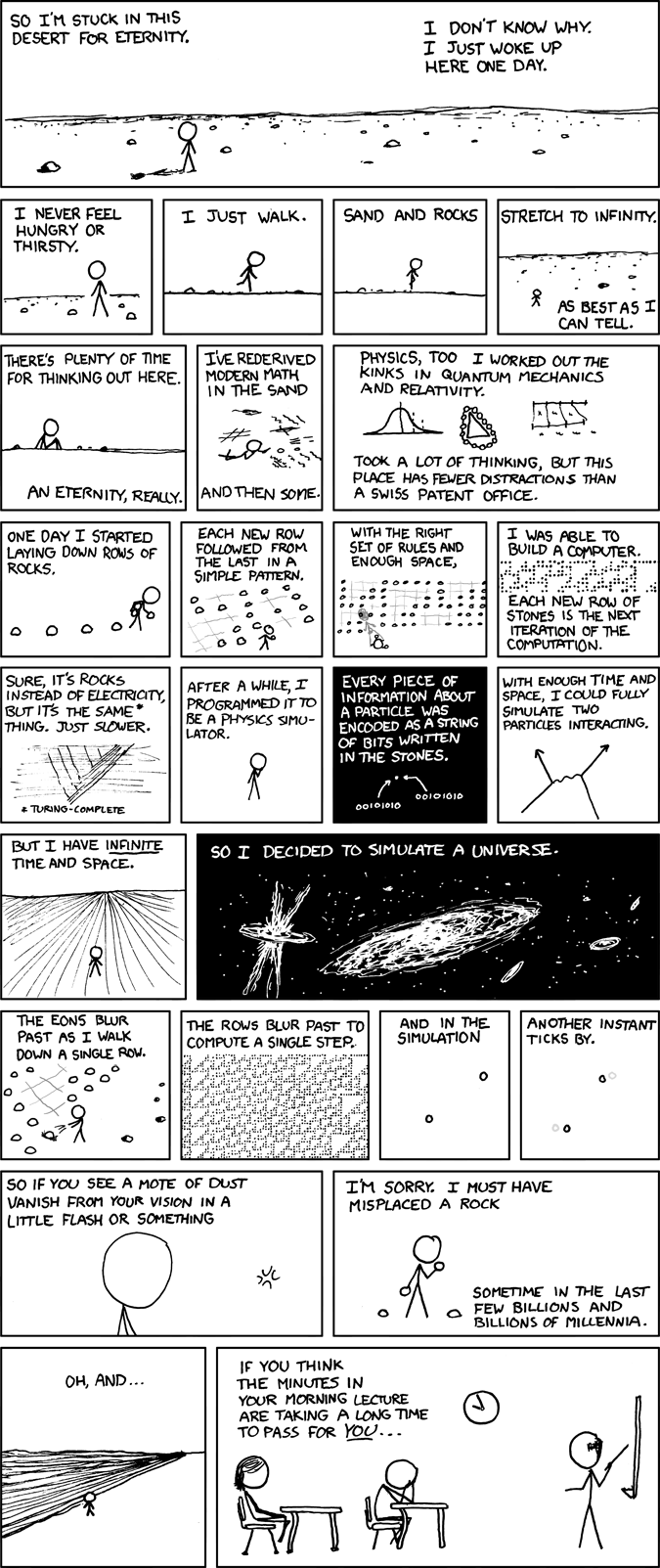Ok, so pretty much I've come to discover something.
What is a computer? Is it the thing that process all our games and programs and such? Well, as we all know the computer is made up of binary digits of 0 and 1 but what do they represent? The binary digits simply represent a 1 being "electric current" and 0 being no electric current, they are created using integrated circuits and transistors. But namely the idea of the computer is pretty much something that changes its state due to an event, it's just a bunch of electric currents that represent something. So the question is, why do you need electricity for a computer? You can actually make a computer out of almost anything! As demonstrated by this xkcd comic.

So well, it turns out that they have made some pretty wonderful concepts of computing to actually increase the standard computational power and to achieve problems that haven't been able to be achieved with our style of computers.
One example is...
DNA COMPUTING
http://en.wikipedia.org/wiki/DNA_computinghttp://computer.howstuffworks.com/dna-computer.htmhttp://en.wikipedia.org/wiki/Pancake_sorting You won't believe this, but it turns out that DNA itself can be used for computers! By actually using a bacteria's DNA they have been able to solve problems that have been previously taken too long to solve on current computers. That's right, not only are these DNA computers smaller than microprocessors but they also have the potential to be much faster than microprocessors. They do this through a process known as parallel computing, which is when many computers work together to solve the same problem, which currently is quite hard to do with current technology (though possible). So by using bacteria's DNA to actually assist other DNA to help compute mathematical problems, we are able to theoretically increase processing power significantly! So one day your computers will actually be living organisms!
But, as said in the wiki article, DNA computers help, but there not exactly the as beneficial as...
QUANTUM COMPUTERS
http://en.wikipedia.org/wiki/Quantum_computerhttp://www.howstuffworks.com/quantum-computer.htmhttp://www.guardian.co.uk/science/2012/may/06/quantum-computing-physics-jeff-forshawElectricity is a bunch of charges moving from one pace to another, we use doped semi-conductors like silicon to move the electricity around, but what if we just use... atoms? Yep, that's right, quantum computing is actually using atoms and quantum molecules to do computational equations! Not only will this drastically reduce the size of microprocessors by a degree of almost unimaginable quantity, this has another subtle effect. As quantum mechanics states that an object can be in two or more different states at the same time, this means that you could have two different computational tasks at the same time using the same computer. So that's very big news, but why is that big news? What's the difference between that and parallel computing? Well, imagine parallel computing as moving your left hand down and your right hand up, now imagine quantum computing as moving your left hand down and up at the same time. So pretty much, it's more efficient, but really complex and as all those articles state, nothing really conventional has been built yet. But if... or should I say... when it does, computer processing will be beyond the limits of what we could have ever imagined... maybe we could finally play Battlefield 3 on full ultra. (To give you an idea of how powerful a quantum computer would be. By using 250 qubits (250 atoms) you could get much, much, MUCH more than a quadrillion times more computational power than all the computers in the world put together (Roughly 2.26 x 10^74 bytes, to build a classical computer of that storage would require about as atoms that exist in the observable universe))
The world record for Quantum computing has been 12 qubits, about half a kilabyte worth of data, but hey that's something

Do any of you guys know about any awesome types of computers? I'd love to know!

Also I'm kind of etchy on the stuff, so if I made a mistake don't hesitate to point it out
